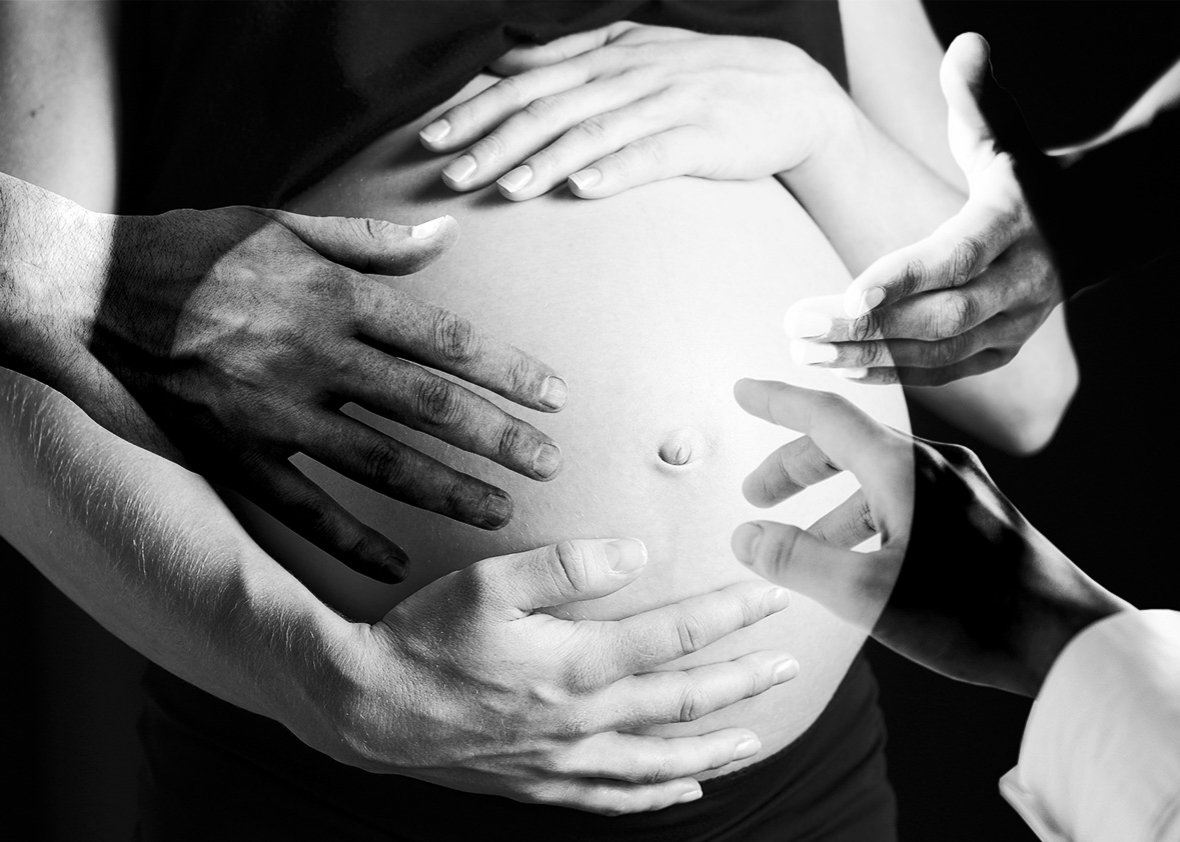The storm that blanketed parts of York County with up to 31 inches of snow had just subsided, and the street outside Reimold's New Salem home had yet to be plowed.
Already a mother of two, Reimold was successfully rushed to York Hospital, where she gave birth in less than 20 minutes — she swears it felt longer — to a healthy boy, who wasn't hers to take back home.

A Surrogate's Story
Though Reimold carried Sigurd in her uterus more than a week past her due date, she is not biologically related to him because she served as the gestational carrier, often referred to as surrogate.
Gestational surrogacy involved in vitro fertilization, where a donated egg is fertilized by sperm outside the body and then implanted into a woman's uterus.
Program in place: York Hospital has been running a program to help support gestational carriers and intended parents through process since 2007, according to Sue Dolla, the hospital's Women and Children Services outreach coordinator.
Mary Miller, Labor and Delivery Department nurse manager, said the hospital has grown from delivering two or three babies through gestational surrogacy per year in 2009 to 10-15 per year recently.
"We've had couples from Israel, Norway, Russia, Canada, Spain and all over the U.S.," Dolla said. "The word is getting out."
Dolla said York Hospital's program has helped streamline the process by having plans in place to work with surrogacy agencies, lawyers and offering tours.
"York Hospital really extends the red carpet to help it be a positive experience," Miller said.
Reimold said York Hospital's staff was very accommodating, making sure she got her paperwork in on time and setting up the intended parents in their own room following the birth.
"(The staff) made the parents a lot more comfortable with the situation," Waltersdorff said.
Both Reimold and Waltersdorff were matched with couples through surrogacy agencies, which help facilitate the whole process.
Growing practice: Dean Hutchison, director of legal services for Boston-based Circle Surrogacy, said gestational surrogacy has been on the rise throughout the United States for numerous reasons.
Before in vitro fertilization became feasible, heterosexual couples were more hesitant to turn to traditional surrogacy, where the carrier's eggs are used for impregnation, because it wouldn't be biologically related to both parents, Hutchison said. Social stigmas have also changed in the past 5-10 years, he added.
"I wasn't sure my family and the community would be accepting when they found out I was having a child that wasn't mine," Waltersdorff said. "But so far, everyone has been extremely supportive."
Circle Surrogacy has been around for 20 years and, in the beginning, no hospitals had any protocols in place for handling the process, Hutchison said, but most hospitals now have a committed program. Spring Garden Township's Memorial Hospital also has a surrogacy program, according to spokesman Jason McSherry.
According to a 2010 Council for Responsible Genetics report, the number of babies born in the U.S. through gestational surrogacy nearly doubled from 2004 to 2008, with an estimated 5,238 babies.
International couples are a major contributor to that growth because surrogacy is prohibited in many countries, and other countries where it is legal, such as Ukraine or India, don't have the same level of medical care as the U.S., Hutchison said.
Ole Aleksander Dyrkorn and Magnus Jonsbu, now back home in Norway with their son Sigurd, previously had a daughter through a surrogate in Rhode Island, according to Dyrkorn.
"In Norway, where we live, surrogacy is not allowed," Dyrkorn wrote in an email. "Same sex couples are allowed to adopt, but very few countries that cooperate with Norway allow children to be adopted by a same sex couple. We know several couples who have become fathers through surrogacy in the U.S., and their experiences have been very positive."
Hutchison said America is also a popular choice for international couples because the baby can easily travel home with them with a U.S. passport.
Pennsylvania, in particular, is a popular place for surrogates because there are no state laws governing surrogacy, Hutchison said, which simplifies the process into a simple court order similar to an adoption process.
Expensive babies: While America may be simplifying the process, it's not a cheap proposition for hopeful parents.
http://www.yorkdispatch.com/story/news/health/2016/02/13/gestational-carriers-surrogates-rise-york/80056316/

